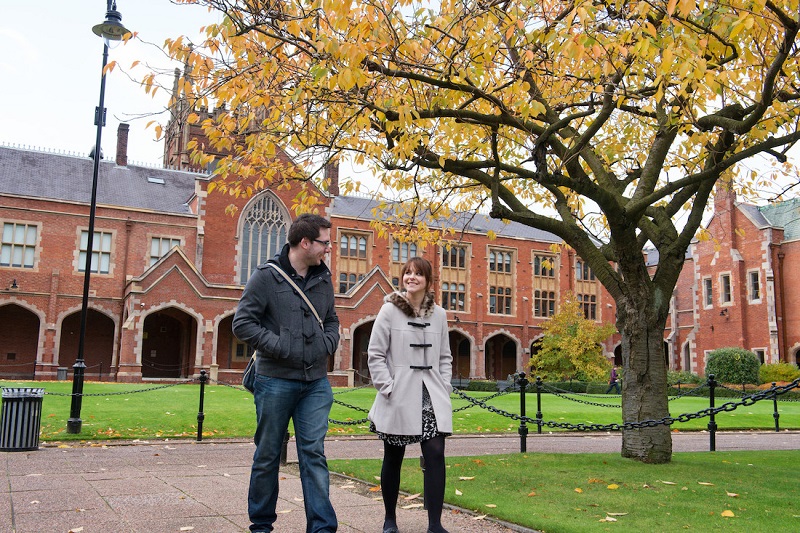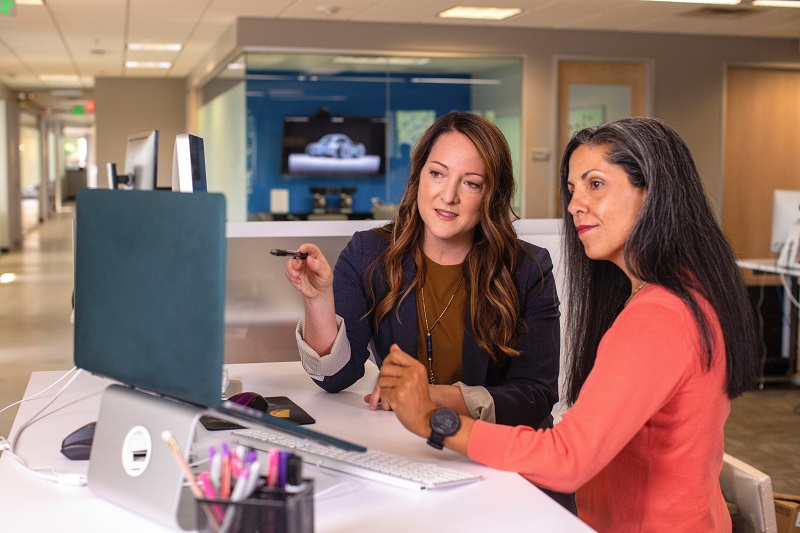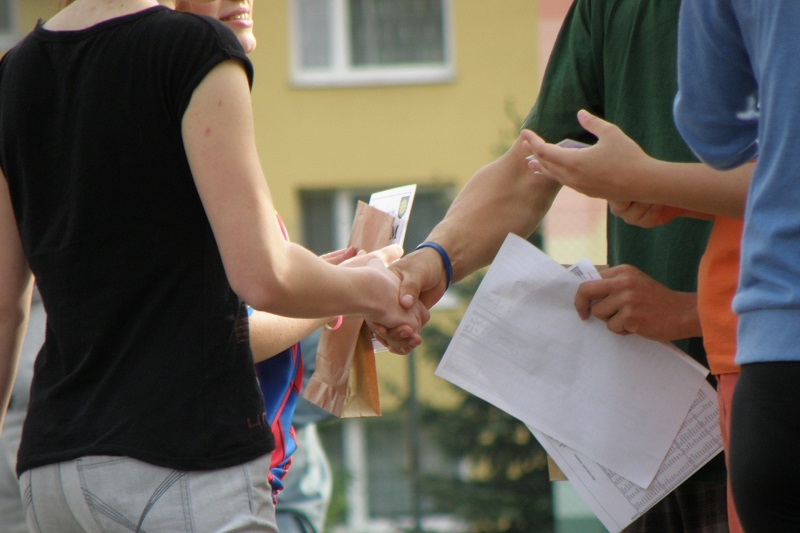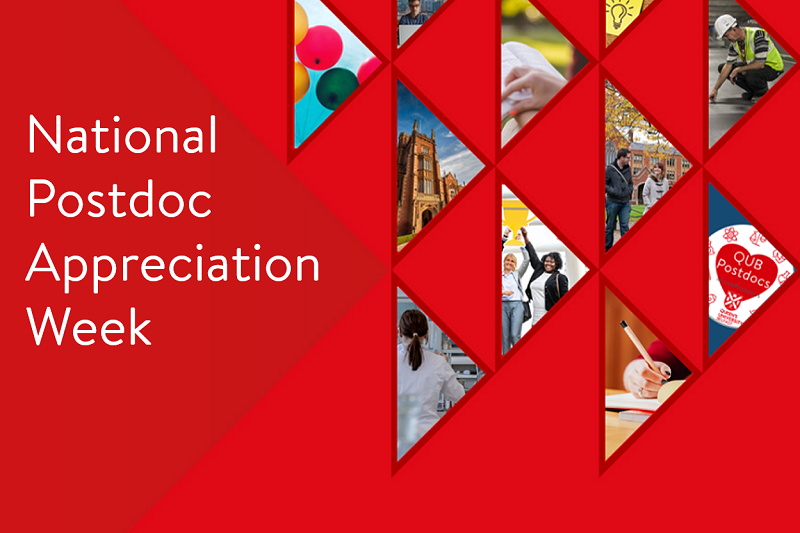Ongoing work and progress
All actions (for 2021-2024 and 2024-27) in our institutional Researcher Development Concordat Action Plans are available on our Researcher Development Concordat page, which also includes yearly progress statements and the PDC's annual reports.
Here we provide some of the main objectives for 2023-24 (as well as what main projects were delivered recently in 2021-22 and 2022-23 further down below).
Progress is updated once per semester.

Main aim:
In summer 2024, the PDC team expanded from two members of staff, to a broader Research Culture team with five members of staff. Notably, Research Culture funding awarded to Queen's by Wellcome specifically detailed a new position within the PDC and in collaboration with the University of Ulster (a Research Careers and Employability Officer), focusing on engaging with local employers to raise awareness of the talent pool of PhDs and postdocs, and to promote career opportunities and options to research staff (via events etc.), leading to movement of talent in the local research and innovation sector.
Progress (January 2025):
All new positions within the team have been recruited, with the addition of a Research Careers and Employability Officer, Jill Wright, in June 2024 and a PDC Officer, Lisa Douglas in August 2024. Alice Dubois, previously the PDC Manager, is now Research Culture Manager and while she continues to lead on Researcher Development Concordat implementation and policy initiatives for postdocs, her role now also encompasses broader research culture strategy for the University and the delivery of the Wellcome-funded Research Culture NI project. Erin Davidson remains the Project Assistant for the PDC, coordinating workshops and events, supporting the Representatives’ Network and managing PDC communications.
Lisa Douglas, PDC Officer, oversees the development and delivery of researcher development opportunities, training, events and guidance. Her role also involves supporting the Postdoc Society, the PDC Representatives’ Network and 1-1 postdoc support. Jill Wright, Research Careers and Employability Officer, is responsible for the career development and employability of postdoctoral staff through supporting with job applications and interviews, the development and delivery of a suite of training and development opportunities and engaging with employers across Northern Ireland to promote the talent pool of postdocs across QUB and Ulster University. For more information about the PDC Team, see our Who We Are page.

Main aim:
The Research Careers and Employability Officer will develop a plan for delivering new career resources; including career workshops, individual support and career exploration events for research staff, significantly enhancing the current provision. They will also engage with local employers to promote the value of postdoctoral talent for their organisations.
Progress (January 2025):
To date, as part of the new career development offering through the Research Culture NI project, Jill Wright has organised four career exploration interviews, covering themes such as using transferable skills to transition to a career outside academia, navigating work-life balance, entrepreneurship and succeeding in an academic career. These sessions have been well attended by attendees from QUB, Ulster University and other institutions and have received on average 4.7/5* and a 100% recommendation rate. These exploration interviews will continue to be held each month. Recordings of these sessions will also be made available via the PDC’s Podcast, ‘The Theory of the Postdoc Evolution’.
A suite of career development workshops is also being developed, the first of which is due to take place in January 2025; Career Audit and Skills for the Future. A number of other workshops will be announced soon. This workshop offering was, in part, informed by a survey of postdocs in QUB and Ulster University about what kinds of career support they felt would be of most benefit and consultation with the PDC Representatives’ Network. Additionally, personalised 1-1 support has been provided to a number of research staff to include general careers advice and guidance, CV reviews, interview preparation advice and provision of mock interview panels.

Main aim (ongoing):
Roll out the new updated PDR form for Research Staff and associated guidance documents and videos for the 2023-24 PDR exercise and gather feedback from research staff on their uptake and effectiveness.
Progress (January 2025):
Following the successful pilot of the new PDR form and associated guidance in summer 2023, the updated PDR resources were made available on the PDC and P&C websites and rolled out to all postdocs in summer 2024, in time for the 2024 PDR exercise. Additionally, a Pulse Survey about the updated PDR process for postdocs (which also gathered information on PDR engagement and knowledge of the 10 career development days for postdocs) was circulated around all research staff in November 2024 in order to gather feedback on the process. The results of this survey will inform any changes to the process and further iterations of the form and associated guidance in the future.

Main aim (ongoing):
The 'Postdoc Life' series of online information sessions aims to highlight some of the internal and sector developments and initiatives relevant to postdocs and research staff, in order to help them better understand and navigate their direct (Queen's) and wider (UK Research and Innovation sector) environment. This is a need that was identified by a Research Staff survey (Sep 2022).
Progress (January 2025):
Short (max 1 h) online sessions with opportunities for Q&A have been organised during the academic year. The topics covered have included ‘Queen’s Pension for Research Staff’, ‘Teaching Certification at Queen’s – a Postdoc View’ and ‘Career Planning Tools – Research Staff PDR and Prosper’. Additionally, a session on ‘Maternity Leave for Research Staff’ was delivered. These sessions were attended by 105 postdocs in total and received 5/5* rating and a 100% recommendation rate from attendees who provided feedback. Video recordings are available on the Information sessions and related content page.

Main Aim:
The Postdoc Society was established in late 2022. It currently has ~10 members who are responsible for organising a variety of ‘by postdocs for postdocs’ events. The PDC aimed in 2023-2024 to continue to provide strategic guidance and funding/administrative support to the Society, to allow them to deliver activities which have an impact on the research community at Queen’s. These ‘postdoc-led' activities will provide networking opportunities amongst postdocs, ensure the provision is fresh and relevant to postdoc needs, and enable members of the Society to develop their leadership and management skills.
Progress (January 2025):
The Postdoc Society has continued to succeed during the 2023-2024 period. They organised 9 events, including a pizza networking event, wellbeing events (including a mindfulness workshop, meditation session and wellbeing walk), two writing retreats, a family-friendly summer social and the 2024 Postdoc Showcase. The meditation session and wellbeing walk were brand new events for the 2023-2024 period. These events were well attended (attendance of 209 across all events) and received positive feedback.
The Postdoc Society continues to provide opportunities for postdocs from across Schools and Faculties to network with one another, focus on their writing and share their research, as well as providing space for postdocs to socialise and spend time focussing on their wellbeing. The Postdoc Society was nominated for a Staff Excellence Award for their achievements during the 2023-2024 period.

Main aim:
Ensure workshop budget is used to provide the most relevant and quality offering researchers need. Following the compiling of overall core workshop provision in the past year and introduction of a few new programs, this review focused on feedback and needs, and involved the postdocs from the network in defining future provision by identifying workshops to keep, refresh, or introduce.
Progress (January 2025):
Existing attendance and feedback data for core workshops provided by the PDC and OD (P&C) was previously shared with the PDC Reps' Network, whose members also consulted with the research staff in their areas about feedback on the existing core workshops during the 2022-2023 period. The existing provision received positive feedback but it was noted that courses on grant writing, collaborating with partners, proposal development, managing difficult conversations, and mentoring and coaching skills would enhance the current offering. The PDC introduced ‘Managing Challenging Conversations’ in 2024 (4.6/5* and 100% would recommend) and a new ‘Introduction to External Research Funding’ workshop in June 2024 which was facilitated by members of Queens’ Research Development team (5/5* and 100% would recommend). ‘Coaching and Mentoring for Researchers’ was provided by OD in June 2024 (4.6/5* and 100% recommendation).

Main aim:
Ensuring research staff are welcomed in their School, Centre, or Faculty (postdoc induction, buddy scheme, meeting with a rep...) and provided with appropriate opportunities to network with peers, present their research (symposium, seminar...), receive feedback on their research and discuss good research practice (journal clubs, group meetings, networks...) and other initiatives promoting a positive experience.
Progress (January 2025):
Most PDC representatives officially feedback to their School or Centre via a School Board or Research Committee and organise a range of activities to promote a supportive culture for postdocs. This includes welcoming/buddy schemes for new postdocs, postdoc symposia, postdoc away days, regular coffee mornings, journal clubs, support networks, social events, career events etc. The PDC representatives also share about their local initiatives at meetings of the PDC Reps’ Network, thereby sharing ideas and good practice. Further work will be undertaken in this space during the 2024-2025 period to ensure that what is offered locally complements the centrally-provided offering of support and development opportunities.

Main aim:
Complement the resources available around the maternity leave policy with considerations specific of research staff on externally-funded fixed-term contracts.
Progress (January 2025):
This work is mainly led by the People & Culture Directorate and Queen's Gender Initiative. FAQs relative to the situation of Academic and Research Staff have been added in a specific section to the existing P&C maternity leave intranet page. The PDC also developed fictional Research Staff case studies to illustrate how the maternity leave policy can apply to different postdoc situations. A 'Postdoc Life' information session on ‘Maternity Leave for Research Staff’ was facilitated by staff from the P&C Directorate in November 2023 which complimented the updated and enhanced maternity leave guidance.
All actions in our institutional Researcher Development Concordat Action Plan are available on our Researcher Development Concordat page, which also include more detailed yearly progress reports.

Main aim:
Adapting the Personal Development Review (PDR) form and guidance to research staff, in order to enable better engagement and productive career and development conversations to take place between research staff and their line managers.
Progress (August 2023):
Members of the PDC Representatives' Network organised consultation with postdocs and academics within their schools to identify the main issues with the current process, and suggestions for improvement. Based on this feedback and consultation with People & Culture, a more tailored form was created to drive better development and career focused conversations, notably including the planning and reporting on the use of research staff's 10 career development days allocation. Short videos and detailed written guidance documents were also designed both for research staff and for their managers, to support them through the process. A trial of these resources is taking place over the summer 2023 with ~40 pairs of researcher/manager from across the institution. Feedback from pilot participants will be collected to inform resources to be rolled out for the summer 2024 PDR.

Main aim:
Complement existing one-to-one support for fellowship proposals' development by introducing additional training and mentoring from Fellowship Academy members (current fellows at Queen's).
Progress (August 2023):
Fellowship training: A programme of 6 workshops and writing sessions was piloted from November 2022 to May 2023 to guide a small group of participants with the development of a BBSRC Discovery Fellowship proposal so that they submit in May.
Networking with successful fellows (event): 40 researchers attended a 'speed-networking' event with fellows from the Fellowship Academy in June 2023. They had the opportunity to meet several fellows in small groups and ask questions, as well as have more informal interactions over lunch (event rating 4.6/5, recommended by 100%).
In addition and based on career stage, members of the Fellowship Academy were also invited to contribute to the internal peer review process (read and comment on draft applications with option for follow up 1-2-1 discussion with applicants), and sitting on assessment panels to aid in some internal selection processes.
This work is mainly led by the Research Development team in Research and Enterprise and Fellowship Academy.

Main aim:
Helping PhD candidates navigate the next step in their career while providing opportunities for postdocs to gain mentoring experience and creating a culture of support and pastoral care across the different stages of a research career.
This is part of the Research & Innovation strategy's overall goal of embedding support and mentoring 'across the research continuum', with researchers at various stages of career helping each other.
Progress (August 2023):
The PDC and Graduate School collaborated to deliver the 'What do postdocs do?' workshop in Nov 2022 and Feb 2023, half of which consisting of small group mentoring discussions with postdoc volunteers (including from the Postdoc Society) sharing their own experience. The feedback was very positive. In addition, postdoc volunteers shared their experience of preparing for their viva, navigating the PhD, and other career events organised by the Graduate School. A sign-up form has been prepared to create a database of postdoc volunteers to enable a more coordinated approach allowing more postdocs to support the development of PhD candidates via Graduate School programmes.

Main aim:
Identify means to enable and recognise contributions of postdocs to the supervision of undergraduate and master taught students, in a way that is consistent across the university. This would add to previous work to enable and recognise contributions to the supervision of PhD students (see Assistant Supervisor role).
Progress (August 2023):
In 2021-22, a working group from the Reps' Network identified key areas to focus on based on an initial scoping exercise of current practices and opinions across schools, as well as a survey of postdocs. Recommendations were drafted and consultation carried out with relevant departments, groups and committees, and approved by PROG in September 2022. A paper was shared with the Deans and Directors of Education Forum, then presented at the Education Committee (Student Experience) in March, which approved the three recommendations put forward. The recommendations and paper are now available on the Supervision page (Policy section).
Separately from this project, but aligned with supervision in general, the PDC also processed 43 Assistant Supervisor appointments in 2021-22, and 24 in 2022-23, recognising significant contributions to the supervision of PhD students. 2021-22 was the first year this initiative was available in the EPS and AHSS Faculties, and the third year in MHLS. Following an update of Qsis (university students’ system), the PDC was able to record all appointments on the system.

Main aim:
Help new postdocs and research staff settle in their new environment and role to improve their experience, ensuring they are aware of the main resources, support and policies applying to them.
Progress (August 2022):
The PDC has introduced a 'New Postdoc induction' online in Mar 2022, and in person in May 2022. They received great feedback from participants (rated 5/5 and recommended by 100%), and will be organised approximately every 2 months (in person) from September 2022. A 'New postdoc welcome booklet' packed with practical information was also developed and will be updated regularly. The PDC now also holds a 'stand' (virtual so far) at all the all staff welcome events, and signposting to these resources is systematically sent to new research staff when they are recruited.
Additional resources in this space have been/ will be introduced at a more local level (Centre, School and/ or Faculty), such as welcoming buddy schemes, local inductions etc.

Main aim of the National Postdoc Appreciation Week Working Group:
Discuss and organise an event/events (and potentially other initiatives) for all Queen’s postdocs to take place during National Postdoc Appreciation Week (e.g., postdoc showcase event).
This is a postdoc-led group and members are fully in charge; the PDC provides insight and support as required by the members.
Progress (September 2022):
A one-day Postdoc Showcase event was organised for the 21st Sep at the Malone Golf Club. The showcase included 15 oral presentations by postdocs, 4 external guest speakers (and panel discussion) on the theme of 'Resilience and Innovation', in addition to presentations on internal progress for postdocs, a poster session (~40 posters) and plenty of networking. The event was attended by 80-100 people and received very positive feedback (rating 4.7/5 and recommended by 100%).
More than 60 profiles of research staff were shared on social media and the PDC website, as well as displayed in the poster room during the Showcase.
In addition to the showcase, the PDC has also coordinated the PDC Postdoc Awards, which were presented during the Showcase. A total of 88 nominations were received (59 in MHLS, 16 in EPS, 13 in AHSS), including some of them submitted on behalf of multiple individuals, and resulted in 10 winners and 11 commendations.
Members:
- Dr Darren Conway, School of Biological Sciences (left Queen's in May)
- Dr Claire Wright, School of Law
- Dr Matthew Streeter, School of Mathematics and Physics
- Dr Ife Bolaji, School of Mechanical and Aerospace Engineering
- Dr Behnam Firoozi Nejad, School of Natural and Built Environment
- Dr Niall Byrne, School of Pharmacy

Main aim of the Work-Life Balance Working Group:
Identify and develop good practice guidance and advice for postdocs and their managers, in order to mitigate current issues that affect the work-life balance of postdocs (e.g., linked to working hours and other working patterns, time off, communications and “always-on” culture etc.), and improve research culture as a result.
Progress (December 2022):
The group identified the main issues that may affect the work-life balance of postdocs, and discussed recommendations, advice, and examples of good practice for postdocs and their managers. These, as well as signposting to relevant university policies, have been drafted and released as a webpage on the PDC website: Work-life policies and tips for research staff and their managers.
These will be disseminated further in 2022-23, notably in line with the introduction of a new workshop on time management, with a focus on working efficiently to enable a healthy work-life balance.
Members:
- Dr Áine Aventin, School of Nursing and Midwifery
- Dr Annemarie Millar, School of Social Sciences, Education and Social Work
- Dr Estelle Lowry, School of Natural and Built Environment
- Dr Gillian Carter, School of Nursing and Midwifery (left the Network and Working Group in August 2022)
- Dr Paul Toner, School of Psychology
- Dr Sara Lorimer, School of Psychology

Main aim:
Identify and comprehensively regroup and advertise Learning and Development opportunities relevant to postdocs across Queen's, as well as identify and fill gaps in the provision.
Progress (August 2022):
relevant opportunities were collected from multiple departments around Queen's and added to the PDC website, both as a list of core workshops and in thematic development pages. A gap analysis was carried out, highlighting that additional provision around leadership development, career progression (academic or not) and supervision. New core workshops were introduced as a result by the PDC and Organisational Development (see details below).
New workshops introduced in 2021-22:
- 'Supervising skills for Assistant Supervisors and postdocs' (PDC, 18 Jan 2022; rated 4.8/5 and recommended by 100%)
- 'Lectureships: Ready, Set, Go!' (PDC, 22 Mar 2022; rated 4.7/5 and recommended by 100%)
- 'Postdoctoral Leadership Programme' (PDC, 21 Jun + 5 Jul 2022; rated 4.6/5 and recommended by 100%, see Leadership Working Group)
- 'Defining Your Career: Exploring Alternative Pathways' (OD, May 2022)

Main aim of the Leadership Working Group:
Shape a new Postdoctoral Leadership Programme, providing input on the content, format, selection process and potential additional resources to enable postdocs to develop their leadership skills.
Progress (December 2022):
The content, eligibility criteria and application process have been designed by members, who also were involved in selecting participants. The new Postdoctoral Leadership Programme took place in Riddel Hall on 21 Jun and 5 Jul 2022 (the second session was moved online due to COVID. The feedback for this first iteration was very positive, with a rating of 4.6/5 and 100% of participants recommending it. Notably, all respondents felt that learning from the course could be applied to their current and future roles, and potentially other aspects of life. Further feedback was collected 6 months after the programme, in order to assess longer-term benefits. The consultation suggests it had been beneficial to participants, who reported increased confidence, putting themselves forward more for initiatives, contributing more in meetings, paying more attention to their development and how they engage with people.
The programme will thus be maintained as part of the PDC core offering.
Members:
- Dr Prabhath Piyasena, Centre for Public Health
- Dr Neha Mehta, School of Chemistry and Chemical Engineering
- Dr Hiroki Shin, School of History, Anthropology and Philosophy and Politics
- Dr Malcolm Brown, School of Nursing and Midwifery
- Dr Melissa LaBonte Wilson, The Patrick G. Johnson Centre for Cancer Research
- Dr Gareth Robinson, School of Social Sciences, Education and Social Work
- Dr Amy Dumigan, Wellcome-Wolfson Institute for Experimental Medicine
- Dr Vijay Tiwari, Wellcome-Wolfson Institute for Experimental Medicine

Main aim:
Help individuals develop their career in a personalised manner, notably providing feedback on application and interview preparation.
Progress (September 2022):
Alice in the PDC now provides one-to-one meetings to research staff. In 2021-22, she has spent more than 60 hours personally supporting research staff, in 35 instances. These included feedback on CVs and job applications, interview preparation or other topics, and was provided via meetings, mock interview panels, or by email.
Feedback demonstrates that such support is helpful, with 100% of respondents having received interview preparation feeling more prepared to attend their real interview, and 100% of respondents having received support with their CV or application feeling it was improved as a result. All respondents recommend it and have rated interview preparation and job application support 5/5.
This new offering is added to other personalised support (career discussion with consultant for participants of the 'Developing Your Research Career' programme), and fellowship support from the Research Development team (one-to-one meetings related to funding applications, proposal feedback and fellowship mock interviews).

Main aim of the Career Options Working Group:
Showcase career options to postdocs in a range of disciplines, notably by linking with postdoc alumni and/or other contacts with careers in and out of academia.
Progress (August 2022):
Career Insight Interview series organised and hosted by members of the group: monthly online sessions in which two professionals share information on their role and personal experience navigating their career post-PhD (open to all).
Sessions were held on 25 Mar, 27 May, and 24 Jun. Another interview focused on entrepreneurship was organised following advice from the group on 5 May, and complements other events from Nov 2021, and ECRday2022 organised by Dr Alison Garden in May. A school-based career event was also being organised in the School of Mathematics and Physics on 31 May. The career interviews attracted a total of 100 attendees and were well-received (average rating 4.7/5), and ECRday2022 was attended by 37 to 166 people (depending on sessions) and also a great success (rated 4.7/5).
Career interviews that have been recorded have been edited into episodes of the PDC podcast, 'The theory of the postdoc evolution'.
An 'Alumni' LinkedIn group (QUB Postdocs) was created for past and current postdocs, to promote role models and examples of career progression and destination. This was done by opening the remit of a group created in 2018 for the MHLS Faculty. It will be further promoted to extend the diversity of members across schools and already had 151 members at the end of 2021-22.
Members:
- Dr Simon Cameron, School of Biological Sciences
- Dr Ciaran McCoy, School of Biological Sciences
- Dr Ryan Milligan, School of Mathematics and Physics
- Dr David Scott, School of Nursing and Midwifery
- Professor Gerd Wagner, School of Pharmacy
- Dr Claire Tonry, Wellcome Wolfson Institute for Experimental Medicine